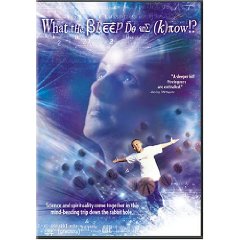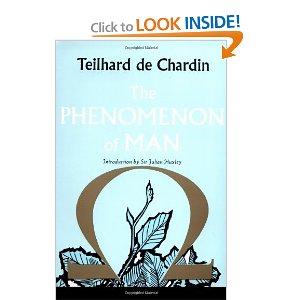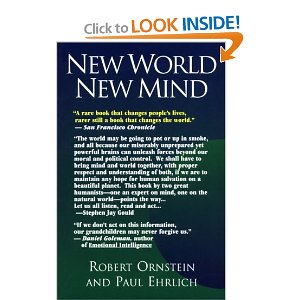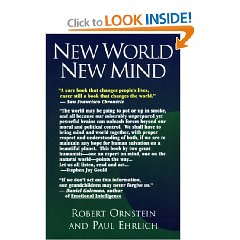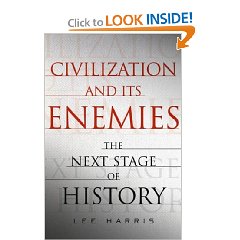This DVD is truly extraordinary. I have nine note cards on it. Here is my very positive summary of key points in this very serious DVD that pulls together credible useful thoughts from some real professionals. This movie held my counter-culture teen-agers attention for a full 45 minutes, which is quite extraordinary in and of itself.
1) Multiple realities exist side by side across time and space.
2) You can move outside “your” reality to see yourself from outside or from another reality.
3) Major problem in our culture today is that children are not learning to think or imagine broadly.
4) Much of what we are taught to think is not true.
5) Modern materialism and most religions have stripped individuals of their ability to see that they are both responsible, and capable, for affecting their environment.
5) Quantum physics opens new ways for individuals to grab responsibility and *live* life to its fullest.
6) New model says that internal reality is more important that external reality, and it does impact on the environment.
7) Brains do not know difference between what one sees and what one imagines.
8) Natives upon Columbus' arrival could not “see” the ships–one cannot see what one has not learned to imagine.
9) Sub-atomic world is beyond current physics–it is not about the matter, but rather about the empty space between the matter. It is not matter that is a live but rather the empty space (as in a basketball) that is full of information.
10) Nothing material exists without interaction with a thinking being. Material is NOT independent, on the contrary, it is totally dependent on perception. Perception is about possibilities, not absolutes.
11) Consciousness drives material reality; perception activates signatures.
12) 4000+ meditators dropped crime in Washington DC by 25%. The Chief of Police was a skeptic, and then a believer. People, and their thoughts, DO affect reality.
13) Water is responsive to thinking, more so than other materials. Photographs of water crystallization after good thinking (e.g. thank you written on side of water bottle) are quite amazing.
14) If thoughts can crystallize water, imagine what the collective intelligence and good will of all mankind could do?
15) There are different levels of truth but the deepest level of truth is that we are all one. We are at one with the larger whole that is God (community) and with one another, but religions have become corrupt and prescriptive rather than enlightened and inclusive. Control of God's image is the height of arrogance.
16) Emotion is a memory enhanced by chemical addition (internal). Problem for most is that they are operating as if today were yesterday, applying old mindsets, rather than working as a part of a larger integrated whole.
17) Mind DOES influence the body. Emotional toxins and habits are as powerful as heroin.
18) We must learn to dream better, and to dream bigger dreams.
19) Definitions of beauty and valor (like definitions of crime and insanity) are illusory, false, and have no authority. There is more to life than the definitions, you simply need to seek it and see it.
20) Change your choices, change your life. Be ready for a chemical withdrawal as you abandon bad old habits.
21) It's not about good or evil, black or white. Life is nuances, to be *experienced*. You are you own pilot, you are your own priest.
22) You co-create your future by your thinking, imagination, wanting, your choices. PAY ATTENTION and you will get what you wish.
23) You can influence your body, others, the environment, and the future.
24) We are all one; we are not alone; we are connected; we are collective intelligence; we are, in the whole, both God and Heaven on Earth.
I buy into this. This is serious good stuff.
I used to turn off when people talked about the paranormal, even through CIA spent a lot of money on “remote viewing” and I have two books in line waiting to be read; here are a few links:
Integral Consciousness and the Future of Evolution
Integral Psychology : Consciousness, Spirit, Psychology, Therapy
The Tao of Democracy: Using Co-Intelligence to Create a World That Works for All
Global Brain: The Evolution of Mass Mind from the Big Bang to the 21st Century
Collective Intelligence: Mankind's Emerging World in Cyberspace

